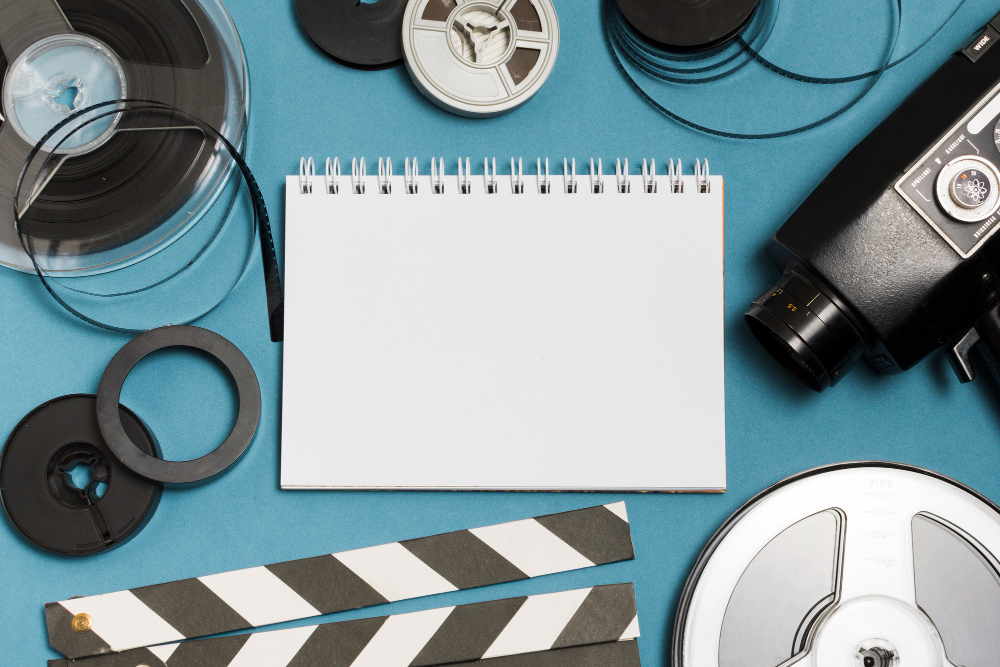Cinematography is the art and science of capturing moving images on film or digital media, with a focus on visual storytelling, composition, lighting, and camera techniques. Whether you’re an aspiring filmmaker, a photography enthusiast, or simply intrigued by the magic of cinema, learning cinematography from scratch is an exciting and rewarding journey. In this comprehensive guide, we’ll explore the essential steps and resources to help you master the craft of cinematography, from understanding the basics to honing your skills and pursuing your creative vision.
Understanding the Basics of Cinematography
Before diving into cinematography, it’s crucial to understand the fundamental concepts and principles that govern the art form. Familiarize yourself with terms such as composition, framing, camera movement, exposure, and lighting. Invest time in studying the works of renowned cinematographers and analyzing how they use visual techniques to convey emotion, mood, and narrative in their films. Building a strong foundation in the basics of cinematography will provide you with the necessary knowledge and skills to create compelling and visually stunning images.
Invest in Quality Learning Resources
There are numerous resources available to help you learn cinematography, from books and online tutorials to workshops and courses. Invest in quality learning materials that cater to your learning style and preferences. Consider enrolling in online courses or workshops taught by experienced cinematographers, which offer practical insights, demonstrations, and hands-on exercises to help you master the craft. Additionally, explore cinematography books, blogs, forums, and video tutorials for valuable tips, techniques, and inspiration.
Get Hands-On Experience
Learning cinematography is a hands-on process that requires practice, experimentation, and real-world experience. Start by familiarizing yourself with different types of cameras, lenses, and equipment, and practice using them to capture images in various lighting conditions and environments. Experiment with different camera techniques, framing options, and composition rules to understand how they impact the visual storytelling process. Consider collaborating with other filmmakers, actors, or artists on projects to gain practical experience and feedback on your work.
Study Film Theory and Analysis
In addition to learning the technical aspects of cinematography, it’s essential to study film theory and analysis to deepen your understanding of visual storytelling and narrative structure. Analyze classic and contemporary films with a critical eye, paying attention to how cinematography, editing, sound, and other elements work together to create meaning and emotion. Study the works of influential filmmakers and cinematographers, and identify recurring themes, motifs, and visual techniques that you can incorporate into your own work.
Develop Your Artistic Vision
Cinematography is not just about mastering technical skills; it’s also about developing a unique artistic vision and creative voice. Take the time to explore your interests, passions, and personal experiences, and consider how they can inform your approach to cinematography. Experiment with different styles, genres, and themes to discover what resonates with you creatively. Don’t be afraid to take risks, push boundaries, and pursue unconventional ideas in your cinematography practice, as this is how you’ll develop a distinctive and memorable visual style.
Build a Portfolio
As you gain experience and confidence in your cinematography skills, start building a portfolio showcasing your best work. Include a diverse range of projects, such as short films, music videos, commercials, or promotional videos, that demonstrate your technical proficiency, artistic vision, and storytelling abilities. Create a professional website or online portfolio where you can showcase your work and share it with potential collaborators, clients, or employers. A strong portfolio is essential for establishing your credibility as a cinematographer and attracting opportunities for future projects.
Seek Feedback and Continued Learning
Throughout your journey in learning cinematography, seek feedback from peers, mentors, or industry professionals to help you identify areas for improvement and growth. Attend film screenings, festivals, workshops, and networking events to connect with other filmmakers and cinematographers and learn from their experiences and insights. Stay curious, humble, and open-minded, and never stop seeking opportunities for continued learning and skill development in cinematography.
Embrace the Journey of Cinematography
Learning cinematography is an ongoing journey of exploration, discovery, and creativity. By understanding the basics, investing in quality learning resources, gaining hands-on experience, studying film theory, developing your artistic vision, building a portfolio, and seeking feedback and continued learning, you can master the craft of cinematography from scratch. Embrace the challenges and opportunities that come with learning cinematography, and let your passion for storytelling and visual expression guide you on your path to becoming a skilled and accomplished cinematographer.

